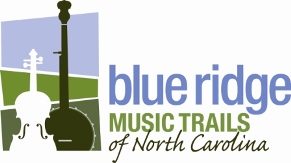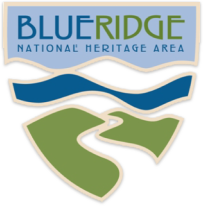
Nationally Significant Facts about WNC Traditional Music
Western North Carolina has a national reputation as a music-rich region, and its traditions of old-time stringband music, ballad singing and bluegrass are internationally renowned.
This region has been home to musicians whose artistry has shaped many forms of American music. Today young people in the region are learning these traditions and transforming them into new forms of roots music.
Western North Carolina has many distinctions in the arena of traditional music that position the region and North Carolina as The Music State:
- No other place has had more influence on the development of the banjo in America. Musicians from the Western Piedmont and Mountain region, including Earl Scruggs, Charlie Poole and Snuffy Jenkins, among many, are recognized as the creators and popularizes of modern banjo styles.
- The fiddle and banjo ensemble tradition that developed in Surry County’s Round Peak community is embraced and emulated by young musicians around the world. The Mount Airy Fiddlers’ Convention is now an annual gathering place for thousands of young musicians influenced by Round Peak musicians.
- Traditional dance evolved over generations with music traditions and flat-footing. Clogging in Western North Carolina is recognized as among the most highly-developed vernacular dance traditions in the country. Haywood County is where team square dancing first originated in the 1930s.
- One of the longest, unbroken ballad singing traditions in America is found in Madison County where singers were first documented by English folk song collector Cecil Sharp prior to World War I. The current generation of singers continues to perform a wide range of ballads, including some brought from the British Isles by early settlers.
- The Mountain Dance and Folk Festival, started in Asheville by Bascom Lamar Lunsford in 1928, is the oldest continuous folk festival in the United States and is the model for the National Folk Festival.
- WPAQ AM 740 in Mount Airy is the oldest live radio show that continues to program regional music from the Blue Ridge. “The Merry Go Round” program, which is broadcast live from the Downtown Cinema Theatre every Saturday, first signed on in 1948 and presents local old-time, bluegrass and gospel performers.
- Western North Carolina has a high concentration of public venues where traditional music can be heard. These include festivals, fiddlers’ conventions, hometown oprys, jam sessions, restaurants, and dances.
- Eleven ballad singers, old-time fiddlers and banjo players from Western North Carolina have received our nation’s greatest honor in the traditional arts: the National Heritage Fellowship awarded by the National Endowment for the Arts. The combined number of North Carolina recipients for these musical genres exceeds that of any other state in the union. They are Ray Hicks, Watauga County (1983); Ola Belle Reed, Ashe County (1986); Wade Mainer, Buncombe County (1986); Arthel “Doc” Watson,” Watauga County (1988); Earl Scruggs, Cleveland County; Doug Wallin, Madison County (1990); Etta Baker, Burke County (1991); Walker Calhoun, Qualla Boundary (1992); and Mary Jane Queen, Jackson County (2007).
- MerleFest, presented at Wilkes Community College in Wilkesboro on the last weekend in April, is one of the nation’s largest and most influential “Americana” music events. The festival is programmed around Doc Watson of Deep Gap, North Carolina, one of America’s musical treasures.
- Currently 14 counties in the region support afterschool programs that utilize local musicians to teach students to play old-time and bluegrass music. In addition, many young people are moving to Western North Carolina because of its reputation for sustaining music traditions.


